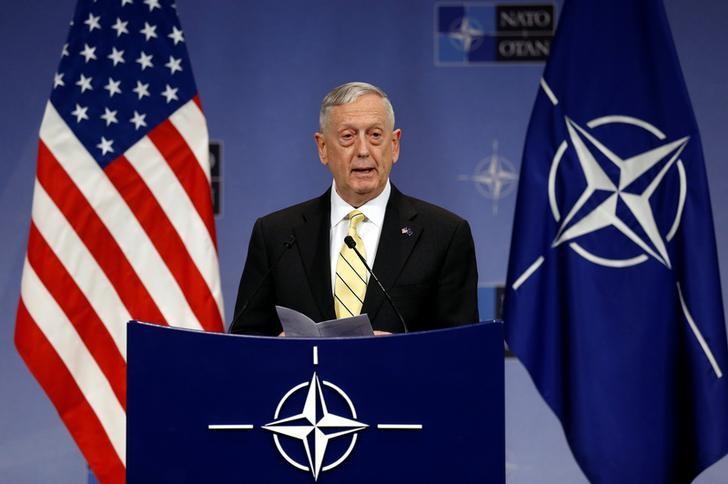US Defense Secretary Jim Mattis on Tuesday criticized on Tuesday Russian military build-up near countries in the Baltic region, deeming it “destabilizing”.
Asked during a trip to Lithuania about the Russian missile deployment, Mattis told a news conference: “Any kind of buildup like that is simply destabilizing.”
Officials meanwhile suggested Washington could deploy Patriot missiles in the region for US exercises in the summer.
US allies are jittery ahead of war games by Russia and Belarus in September that could involve up to 100,000 troops and include nuclear weapons training — the biggest such exercise since 2013. The drills could see Russian troops on the border with Poland, Lithuania and Latvia.
Russia has also deployed Iskander missiles in Kaliningrad, its enclave on the Baltic Sea. It said the deployment was part of routine drills, but US officials worry that it may represent a permanent upgrade to Kaliningrad’s missile capability.
The United States is ruling out any direct response to the Russian drills or the potential missile deployment.
But at the same time, US officials, speaking on condition of anonymity, raised the possibility that a Patriot missile battery could be deployed briefly to the Baltic region during upcoming US-led summer exercises that focus on air defense.
One of the officials said Patriots had not been previously deployed to the Baltics, although they had been in Poland. The officials stressed the Patriots, if deployed, would be withdrawn when the drills were concluded. That would likely happen before the Russian drills began, they said.
Mattis declined to comment directly on the possible Patriot deployment when asked by reporters after talks in Vilnius.
“The specific systems that we bring are those that we determine necessary,” Mattis said, saying that NATO capabilities in the region were purely defensive.
It was Mattis first trip to the Baltic states, who fear a repeat of Russia’s 2014 annexation of Ukraine’s Crimean peninsula.
Asked about any Patriot deployment, Lithuania’s President Dalia Grybauskaite, standing next to Mattis, said: “We need all necessary means for defense and for deterrence, and that’s what we’ll decide together.”
The scale of this year’s Russian Zapad exercises, which date from Soviet times when they were first used to test new weapon systems, is one of NATO’s most pressing concerns. Diplomats say the war games are no simple military drill.
Estonian Defense Minister Margus Tsahkna told Reuters last month NATO governments had intelligence suggesting Moscow may leave Russian soldiers in Belarus once the Zapad 2017 exercises are over, also pointing to public data of Russian railway traffic to Belarus.
Moscow denies any plans to threaten NATO and says it is the US-led alliance that is risking stability in eastern Europe. The Kremlin has not said how many troops will take part in Zapad 2017.
